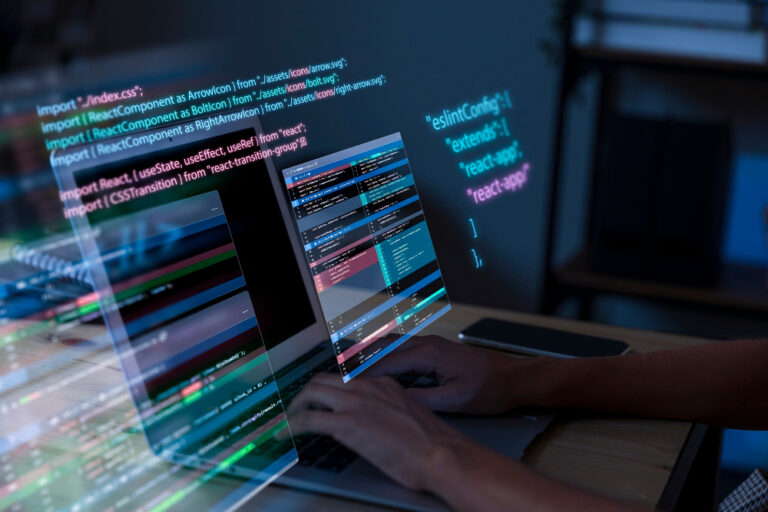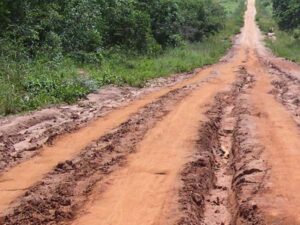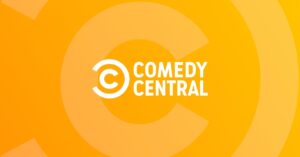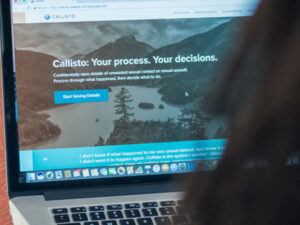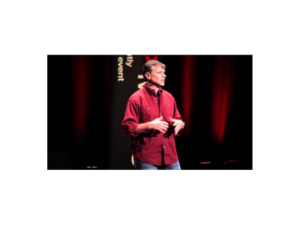RECODE is a social impact organization that provides training, education, and resources in order to digitally empower historically disadvantaged communities with skills to navigate new technologies. Their methodology emphasizes the importance of educators, teachers, and librarians to empower people and help expand economic opportunities.
Rodrigo Baggio of RECODE spoke with Ashley Hopkinson on November 16, 2023. Click here to read the full conversation with insights highlighted.
Ashley Hopkinson: Can you please introduce yourself, the problem you were trying to solve with RECODE and how you feel communities are changing through the work that you’re doing?
Rodrigo Baggio: My name is Rodrigo Baggio. I am a tech social entrepreneur and 28 years ago I started the very first NGO in the field of digital inclusion on digital empowerment.
The problem that we are impacting is the necessity of digital empowerment or digital inclusion. Not only the number of people that are on our planet that are digital-excluded, but also training and empowering people to use technology to change their lives, impact their community, get jobs, and find a better position in the market. As well, education. Public schools need more support to teach, and technology for students. The way that the Center for Digital Inclusion, CDI, and RECODE are doing this is through our digital empowerment centers. We have all of the training and learning technology on our website where people can virtually do training.
We have over 40 different contents and trainings. Our digital empowerment centers are creating partnerships with community-based organizations like community centers, community NGOs, associations, or public schools, or public or community libraries. We do a partnership with these community-based organizations, implementing in one or two rooms at digital empowerment centers. The digital empowerment centers have computers, technology, and educators trained to be educators in the local area, at the local level. They provide training for our students that are leaving bad communities, or slums or favelas.
We have 1,050 of these digital empowerment centers in all of the Brazilian states, and in 11 other countries. We operate in 12 countries with 1,050 digital empowerment centers. We have trained 1.8 million people. Last year, for example, we were training over 40,000 people and we graduated 700 full stack developers. Front-end, back-end, and mobile developers as junior developers among people from underprivileged communities, prioritizing for women, Black people, and LGBTQ+. This is what RECODE is doing. We also inspire public policies and other partnerships with companies and organizations.
Ashley Hopkinson: Who primarily benefits from your work?
Rodrigo Baggio: Beneficiaries are people that are 14 years and up. We can train senior citizens and adults, but we prioritize our training for young people. [Everyone we work with are] people in at-risk situations. People that live in low income communities. We have our digital empowerment centers in partnership with different organizations, including people like indigenous people, Quilombola, which are the formerly enslaved people that are living in the Amazon Rainforest, for example. We have training focused on teaching young indigenous people how to be coders and developers. We have different purposes in different communities of people that we serve.
Ashley Hopkinson: That’s wonderful. What would you say is the primary way that you engage with these communities?
Rodrigo Baggio: This is an important question because we are working on the level of scalability. It’s very important. There are two ways that we engage. One is we directly create our digital empowerment centers through our partnerships and through our programs. Public schools, public libraries, and community-based organizations also connect to us directly through our website or WhatsApp groups or email.
Ashley Hopkinson: What do you think makes the work distinctive? What makes the work special and set apart from others that might be in this space?
Rodrigo Baggio: You know what makes us different is our methodology. Our methodology is inspiring. Our beneficiaries want to be tech change-makers no matter if they are learning basic technology or how to be a full stack developer. What we do in our methodology is connect our students with the reality that they are living in their communities, in their school. Then they choose a problem they want to spend some time on or are passionate about and they use the technology that they are learning to do a project or planning a process that could impact the problem they choose. The fourth step is to take action and experience it for yourself. Be a tech change-maker or be an entrepreneur or create a movement or create a campaign.
We do this in different courses. For example, we have the basic ones, the introduction for the digital world, where people are going to learn about the basics. They’re learning about Word, Excel, PowerPoint, and Access. Doing projects or campaigns. We also have courses focused in digital marketing where they learn more about digital marketing and they create campaigns with their own marketing packets. We have programs that train people in building apps for impact, where they’re prototyping an application for a smartphone that will impact a problem in their community.
Then we have a process that is similar, creating ideathons, hackathons, accelerating the prototyping and connecting people, doing mentorships. We have programs, for example, that teach the technologies of the future, which is the basics of artificial intelligence, the basics of VR, 360, augmenting reality, biotechnology. I know we have discussions about attitudes and values, and prototyping solutions, or we have training games with purpose where they’re going to learn how to create a storyboard about a game with purpose.
Ashley Hopkinson: I could see the games being popular with the 14 year olds.
Rodrigo Baggio: Yeah. Most of these are popular. But also it’s very nice for us. When we work in the country, we customize our programs to the importance of the public that we work with in the country. For example, the programs that we’ve proactively created in the Amazon Rainforest. I think it’s very important to share the collaboration that RECODE is doing with others in Brazil, to connect (communities that live in the Amazon) to the internet.
For example, RECODE is leading an alliance with Microsoft and Accenture to democratize generative artificial intelligence in low income communities in Rio de Janeiro as a way to create an alliance and a coalition among common companies to democratize generative artificial intelligence. We’re going to launch that at the end of the month. The programs that we have for female indigenous people in Brazil, or the programs that we have in other communities. This is the way that we run our programs.
Ashley Hopkinson: I love that. Is there an example you can share with me, a story of the impact of your work?
Rodrigo Baggio: Sure. For example, Wandersun. Wandersun is a boy that grew up in a community, in a slum in Rio de Janeiro called the German Complex. The German Complex is a group of over 30 favelas that are working together in this territory. He started to use drugs and work with drug dealers, gangs. Then he was in prison. When he left prison, he came back to work with the drug dealers. Then he became kind of a CFO and COO of the drug dealer gang in his community. His work basically is receiving the drug truck, and then mixing it with other products and distributing them to over 60 stores in his community. For that reason he went to prison again. He was in one of our digital empowerment centers in this prison. He’s learning fast. Our educator there realized Wandersun was learning very fast and started teaching or helping other colleagues. That shows the importance of the RECODE educators, because our educators identified a talent and asked him to be an educator.
He said, “Oh my God, I’m a robber. I’m a bandit. I’m never going to be an educator.” But the educator believed in him and helped him become an educator too. Now he’s training a lot of people that are in these juvenile centers. When he left the prison for good behavior, he negotiated and dropped out of the drug dealers gang, the Red Command, which is one of the big drug dealer gangs in the Rio de Janeiro slums. He started working for RECODE, working for other digital empowerment centers, training 100,000 youngsters from these communities in 10 Brazilian states. When Satya Nadella went to Brazil, Microsoft invited Wandersun to give a speech to over 1,000 businessmen and women in São Paulo. Wandersun shared this stage with Satya Nadella talking about the power of technology to change lives. So imagine a former drug dealer, a tech change-maker with the CEO of one of the biggest companies on our planet working together, inspiring people about the importance of digital empowerment.
We also have, for example, the indigenous communities that we serve in the Amazon. Imagine the community of the Yawanawa, near the Ashaninka, [who live] seven kilometers from the border of Peru. We’re connecting the community and the internet. We’re training the trainers, the educators. When we had the first month of our digital empowerment center there, drug dealers and wood dealers from Peru invaded the territory transporting illegal drugs and illegal wood. In that process they killed some of the indigenous people and raped some of the indigenous women. And the Ashaninka decided to start a war against these drug dealers and wood dealers from Peru. In the war board meeting, they were so worried because the drug dealers have automatic guns. And the Ashaninka, the indigenous have a zarabatana [dart pipes]. The shaman warrior spoke and said, “We have the most important weapon. The Internet.” They then decided to use the internet to write an email to the president of Brazil asking for a movement that shows that the Ashaninka are protecting the Brazilian territory because their army is not there, and they are starting a war to protect the Brazilian territory. This email started the movement and the president of Brazil sent for the Brazilian Army Force, which sent helicopters. The drug dealers from Peru left the indigenous territory and Brazil because the Ashaninka won the war. They won the war because they used the internet to mobilize for peace.
We also have examples of people learning how to be full stack developers and then got jobs and changed their lives. Or we have, for example, in our programs we’re teaching people how to do short films in VR, 360, for Metaverse about their problems. When we train, for example, 90 women in the Complexo do Alemão, a slum in Rio, to do short movies in VR 360 about gender issues in their communities. So we have very different examples.
Ashley Hopkinson: Thank you for sharing those stories with me. The next question I have is about passing on your wisdom. You’ve been in this work for a long time, what insights or teachable lessons can be taken from your work that others can use?
Rodrigo Baggio: I think the first thing is the fact that we need more collaboration and coalitions and to design this kind of collaborative impact in our world. It’s better working together. It’s better for people that want to do things to know that we can also do things together. Creating digital empowerment centers or creating programs together.
I believe when we’re working with technology, we need to adapt ourselves for the communities that we are serving or for the public that we are serving and for the technology that we are using. For us at RECODE, we’ve started being a part of the third industrial revolution. Democratizing computers and the internet. We do have solutions that are organizing donations of computers and repairing these computers and giving them to community-based organizations in these slums. But also we’re working as [an agent of the] humanization of the fourth industrial revolution: training people to be full stack developers. Training people to be coders. Training people to create apps to impact their reality, or creating short movies in VR 360 for the metaverse, or creating things for that.
Adapting ourselves through the fourth industrial revolution was really important as well. The fact that we are adapting our methodology and curriculum in our digital empowerment centers to democratize generative artificial intelligence. I think it’s really very important for us social leaders to flow and adapt and identify the moments to change and adapt ourselves to be a learning organization. Being a social entrepreneur, we need to learn about how to balance our work with our family and our own health, because it’s really normal, [to have] stress and burnout in our field. When we talk about well-being, it’s really important for social leaders to have this kind of balance.
Ashley Hopkinson: How do you measure success in your organization? What is the evidence that you’re making progress?
Rodrigo Baggio: We track the numbers of our digital empowerment centers, number of educators, and also the courses and the students. And the products that courses create, which means these stories of impact or transformation. We’re using technology to engage our students, and through having information about them in their communities to improve our trials, our journey, our courses. Updating them for new technologies or courses or dimensions. We also have internal impact evaluations. Also through some projects we do external impact evaluation, which is very important also.
Ashley Hopkinson: As a social entrepreneur, you learn as much from what went well as you do from what didn’t go as well. Could you describe something you tried that didn’t work, and the lesson that it taught you?
Rodrigo Baggio: When I started creating campaigns and collecting computer donations to bring to community-based organizations, what I realized was that it is not enough because people receive the computers, and what’s next? We realized we need to create a computer school and computer training to use the technology. That way we train people how to use the technology. We needed to work more for education, and we created an evolution in our program.
Then when we started to replicate our digital empowerment centers, we started to see a lack of quality in the replication process. I needed to study the markets and understand about networkings, and create a social franchising model to help with the replication for better quality. Then we understood that creating a social franchising model, just creating the documentation for the step-by-step process to creating one of our social franchising is not enough because we need to create the social networking. Creating a way that the community center is changing their experience, the educators, and things like that. I think the challenge here is considering obstacles as an opportunity to change and readapt. So the mistakes that we made before were an opportunity to improve and create an evolution for our work.
Ashley Hopkinson: What do you think is needed from other partners or people who are in this space to advance system level change?
Rodrigo Baggio: I think first we as associate-backed leaders, we’re developing a systems-changing vision to inspire and lead our organizations and employees. Working in collaboration is critical at this moment. It will not be enough if we are operating in an individual way. Creating, promoting, and fundraising, and stimulating all our own methodology or organization or programs. Creating collaboration is strategic to scale, impact, and success.
Operating at the level of public policy is also important to scale up and to influence public policies. I think we need to build a better ecosystem because there are a few countries in the world where the ecosystem for social impact leaders and social innovators is working well, including the United States. Most countries in the world need to create the basics, which is to create the ecosystem. Creating a strategy to unlock the social economy. I think this is critical to massively impact the NGOs and the social businesses that are in our field.
Two weeks ago we launched a report in the World Economy Forum by Deloitte and 15 impact leaders worldwide. I was part of this group. We worked for 15 months producing the Unlocking Social Economy Report. That report shows five big topics that are needed to unlock the social economy or to create a new ecosystem to impact social leaders. Usually for social leaders, the ecosystem is a desert. It’s very arid. It’s very difficult. That’s also creating most of the challenges impacting the wellbeing for social impact leaders. Improving the ecosystem is critical. To do that, we need to operate in collaboration, for collaborative impact, building these collaborative initiatives. One of the examples of this collaborative initiative is Catalyst 2030 that I was one of the co-founders of.
Catalyst 2030 is the biggest coalition that we have nowadays for social impact leaders. We have over 3,500 NGOs and organizations working together. Skoll is one of the supporters of Catalyst 2030. The strategy is to have this global movement operating in the chapter level and in the country level which is critical to helping create this new ecosystem.
Ashley Hopkinson: Would you say that that’s the primary way that you’re working towards systems change?
Rodrigo Baggio: No. What I’m saying is we as social impact leaders and we as social entrepreneurs, we need to operate at our level, in our organization, with our methodology, and everything there is connecting that. Also we need to operate in a more global way in collaboration with others and in others’ movements, then we can create better ecosystems for everyone. I give examples like Catalyst 2030 [because they are] working as a kind of association for social impact leaders.
Most of the time we can see that all of the industries in the world have their own union or their own way to influence regulatories or influence their own ecosystems. As social impact leaders, we are not operating on a collective level. Every social impact leader needs to operate on three levels: on the level of their wellbeing and family, in the way that we live, on our NGOs or social impact organizations like RECODE, like others NGOs that are working where they are, on different causes. And we need to operate on the country level, state level, world level creating better ecosystems for everyone. Three levels of impact that we need to do as social impact leaders.
Ashley Hopkinson: Aside from funding, which I think most social entrepreneurs will probably say is a challenge, are there any challenges that you have faced or you’re currently facing that you could share?
Rodrigo Baggio: As you have said, fundraising is a big challenge for NGOs, but I think at this moment it’s worse. I think it is important that you and your work actually creates awareness about that. It’s time for people to rethink their own organizations, because these are one of the most difficult times that we are living in for fundraising in the history of this sector. Beyond the fundraising problem, we have the problem in the sector about loneliness, isolation.
This is something that we need to face and work to support our brothers and sisters, social impact leaders. I think problems and challenges that are critical are related to innovations and growing our methodologies and organizations relating to how you can build a board of directors that are working well. Governance is always a kind of issue that we need to, as social impact leaders, take care of.
Ashley Hopkinson: In your particular case, how have you been working to alleviate the pressures of that challenge for yourself and for RECODE?
Rodrigo Baggio: I think all of the organizations that support social impact leaders should be recognizing these social impact leaders through awards and ceremonies. And try to create networking to put these social impact leaders together. Try to organize one or two events per year to connect some of them. This is one reason that I was part of a group of social entrepreneurs that created a methodology around peer exchange groups for social impact leaders. That was Tendrel. Tendrel is this organization that social impact leaders created six to seven years ago, to create peer exchange groups and peer learning groups for social impact leaders. The methodology is very easy. You can create a group of six to 10 people with no competition and confidentiality, that meet once per month, sharing updates and presentations that are in line with the biggest challenges in our lives in the personal level, family level and organizational level. These kinds of peer exchange groups are critical to solving the most important challenges, connecting with wellbeing, loneliness, isolation, and self-support, and peer exchange that we have in our programs. Tendrel did merge with Catalyst 2030, and we are operating the Catalyst 2030 and these peer exchange groups for social impact leaders.
Ashley Hopkinson: Where do you see RECODE in the next five years? I know that’s a big question, but what’s your vision? How do you see the organization evolving?
Rodrigo Baggio: We are updating the RECODE methodology and operations to also operate in the humanization of the fifth industrial revolution. The alliance that we are building now with Accenture and Microsoft to democratize generative artificial intelligence is something important in unity for us in this strategic moment of humankind.
We are also improving more of our programs for the Amazon Rainforest or for the benefits of the ancestral communities and civilizations in Brazil as our way to empower the public. Indigenous, Quilombola, and the Extractive Reserves. We operate in these strategies that could improve the creation of communities and natural workings for RECODE Public, which is a community-based organization through our digital empowerment centers, educators in our communities, and our beneficiaries, our students.
Ashley Hopkinson: Thank you so much for your time. I really enjoyed this conversation and I learned a lot.
Click here to read the full conversation with insights highlighted.
Ashley Hopkinson is an award-winning journalist, newsroom entrepreneur and leader dedicated to excellent storytelling and mission-driven media. She currently manages the Solutions Insights Lab, an initiative of the Solutions Journalism Network. She is based in New Orleans, Louisiana.
* This interview has been edited and condensed.
Find other social impact organizations working with historically disadvantaged communities.

